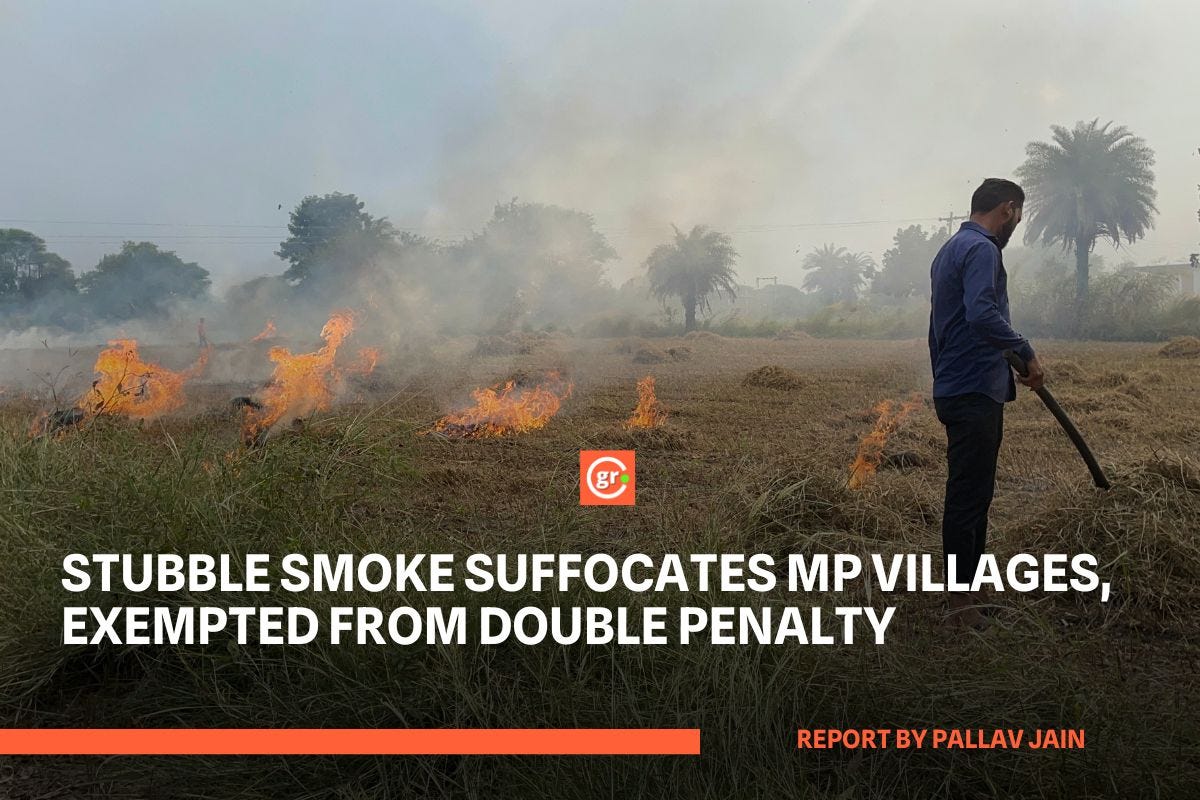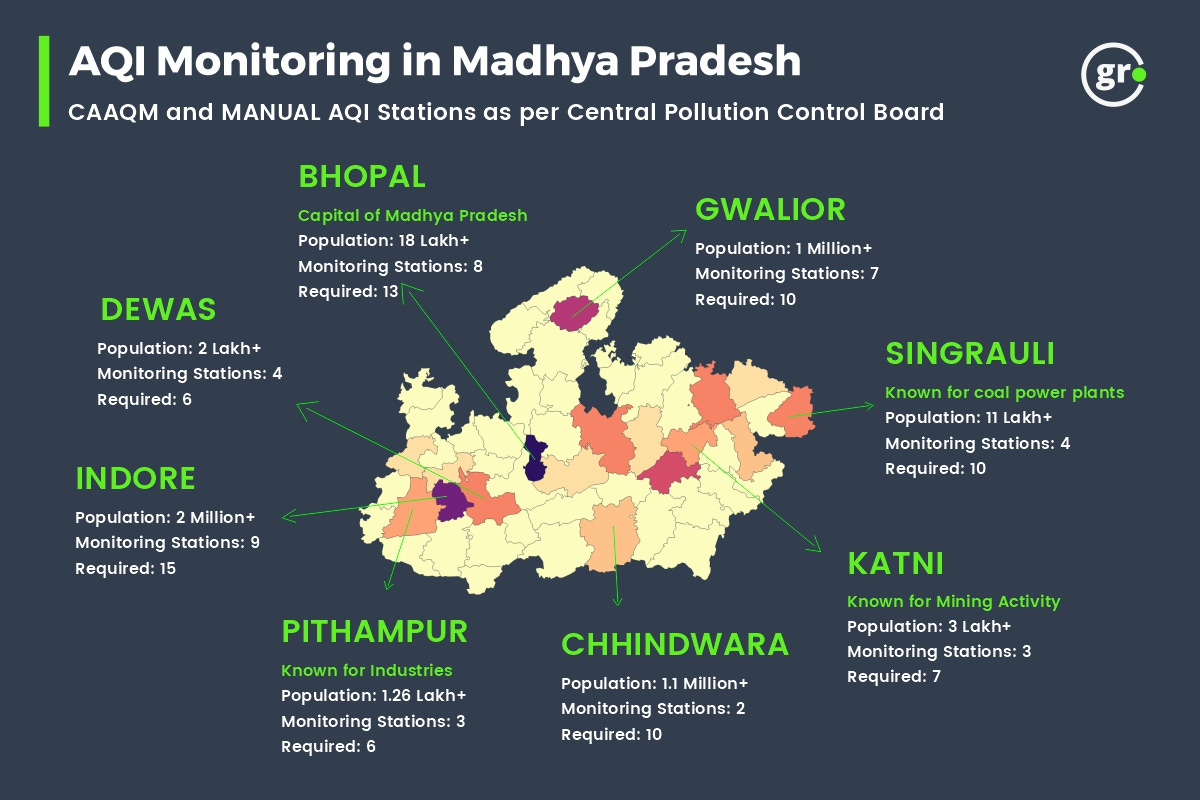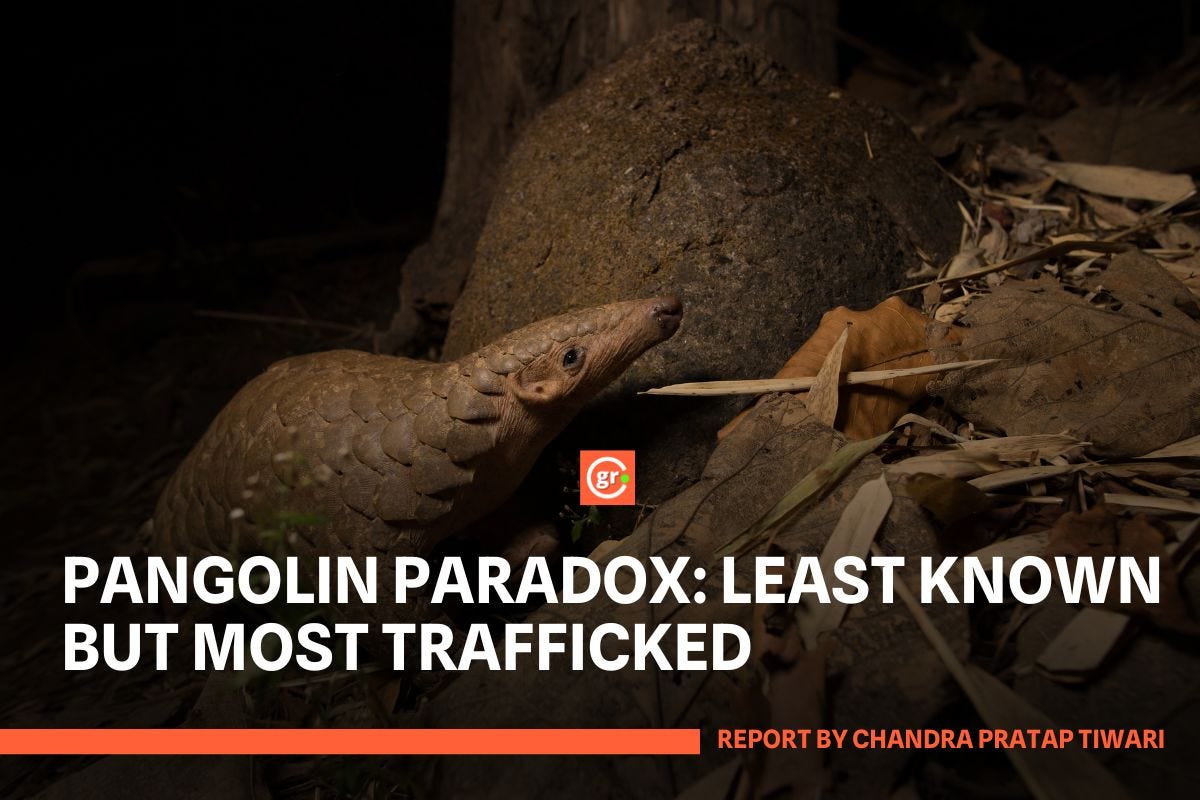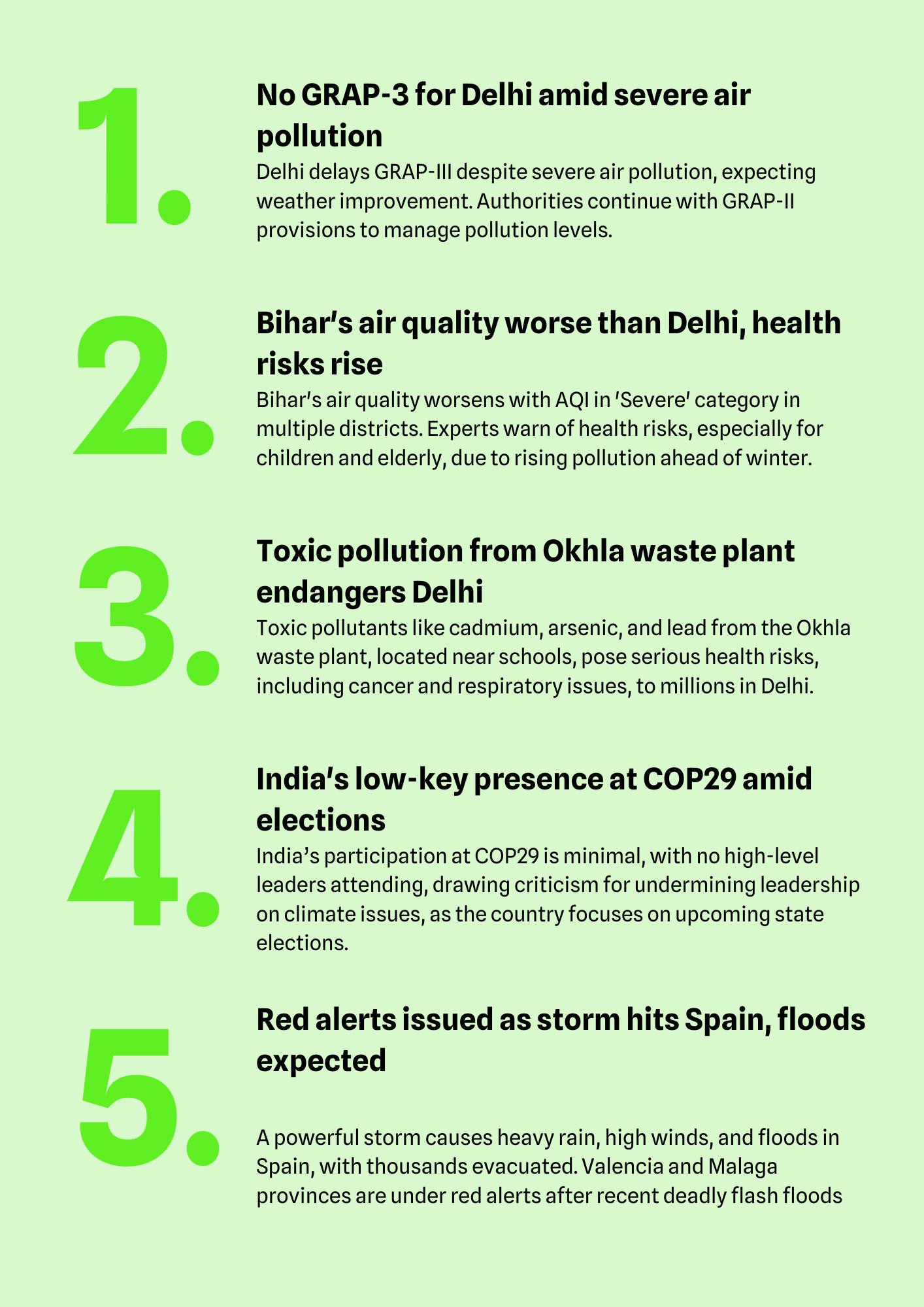Farmers struggle with crop prices and fertilizer shortages in MP
MP farmers face dual challenges: low prices for soybeans and paddy and shortages of essential fertilizers for the upcoming Rabi season. The Ground Report newsletter investigates these pressing issues.
The first week of November has brought a plethora of problems for the farmers of Madhya Pradesh. On one hand, farmers are struggling to get a fair price for selling their Kharif produce of soybean and paddy, while on the other hand, they also have to sow the Rabi crop, for which there is a huge shortage of essential fertilizers like DAP and urea in the state. Ground Report has investigated both these issues on the ground, which we will talk about in detail in our newsletter this week.
Along with this, we will talk about the increased air pollution due to stubble burning in Madhya Pradesh and the infrastructure available for air quality monitoring in the state. At the end of the newsletter, we will tell you about 5 important environmental news stories of this week.
Let's take a look at these important news stories stories covered by our reporters one by one...
Fertilizer crisis in Madhya Pradesh
As the Rabi season unfolds, farmers in India, especially in Madhya Pradesh, are facing a severe DAP (di-ammonium phosphate) fertilizer shortage. This crisis is hindering the timely sowing of essential Rabi crops like wheat and pulses. Farmers are reluctant to use alternatives despite available DAP substitutes, leading to increased demand and persistent shortages.
Numbers tell a story.
At the start of this Rabi season in October, the country’s DAP stock was 21.76 lakh metric tons, down from 37.45 lakh metric tons last year.
Madhya Pradesh accounts for 9.4% of India's fertilizer consumption, yet the current supply struggles to meet demand.
NPK fertilizer consumption in Madhya Pradesh peaked at 103.58 kg/ha in 2019 but has been inconsistent since.
Watch the video report by Pallav Jain for more details.
Struggle for fair prices of paddy and soybean
Due to heavy rains in Madhya Pradesh in the last week of September, the soybean crop of the farmers has been badly damaged. In the Sehore district itself, where 10 quintals of soybean were produced in one acre, it fell to 1 quintal. The soybean that has been produced is also not of such a standard that the farmers can sell it to the government at MSP. In such a situation, the farmers are not able to take advantage of the procurement of soybeans at MSP, which is taking place after 25 years in the state. They are forced to sell their crop to traders at low prices. Our reporter Pallav Jain has covered this issue in detail.
Due to extreme weather, some farmers in Madhya Pradesh have shifted from soybean to paddy in recent years. Data shows the area under paddy cultivation has increased, while soybean has declined. Paddy production has been better, but prices are down - from ₹4,000/quintal last year to ₹2,800 this year for Basmati. The Ground Report team has covered the problems faced by these paddy farmers in detail.
Stubble burning and inadequate air quality monitoring infrastructure in Madhya Pradesh
Pallav Jain, in his Ground Report, highlights the ongoing stubble burning crisis in Madhya Pradesh, where the central government has doubled fines for stubble burning in Delhi and neighbouring states, yet MP remains exempt.
Despite being the second-highest offender after Punjab, farmers in Madhya Pradesh villages like Khajoori Sadak continue burning stubble due to financial constraints and a lack of awareness about alternative solutions.
Chhatar Singh, a local farmer, explains,
"With rising costs and no support, burning stubble is the cheapest option."
This selective enforcement raises concerns about regional policy gaps and their impact on air quality, as smoke blankets the region. Read full story here
According to the air quality index report from November 9, AQI levels in several areas of Bhopal exceeded 300. The AQI was recorded at 316 in TT Nagar, 301 near the collectorate office, and 323 at the Environment Complex Monitoring Centre.
Air quality monitoring plays an important role in the fight against pollution. In such a situation, it is very important to know whether there are enough resources for air quality monitoring in a state like Madhya Pradesh.
Our reporter Chandra Pratap Tiwari has found in his report that many big cities of Madhya Pradesh do not have enough stations for air quality monitoring. Read this report in detail.
Positive News
Pangolin conservation efforts in Madhya Pradesh
Moving ahead, our reporter Chandrapratap Tiwari covered the story of pangolin conservation in Madhya Pradesh, where the Wildlife Conservation Trust (WCT) and the Madhya Pradesh Forest Department are working to protect this endangered species. Since 2019, 14 pangolins have been rehabilitated in the Pench and Satpura tiger reserves, with successful breeding reported.
Despite challenges like nocturnal habits and illegal smuggling, efforts to safeguard these elusive mammals continue. Read full story here
Top environmental news of the week
Read all the latest environmental news on Ground Report.
Signing out
Thanks for reading The Ground Report. We spotlight rural environmental issues often overlooked by mainstream media. Our focus? The communities most impacted by climate change, where livelihoods depend directly on the environment. Stay tuned for more stories from India's heartland.
We need your support to continue this effort. Share our work as much as possible and also support us financially.
Follow Ground Report on X, Instagram and Facebook for environmental and underreported stories from the margins. Give us feedback on our email id greport2018@gmail.com.
Don't forget to Subscribe to our weekly newsletter, join our community on WhatsApp, and Follow our YouTube Channel for video stories.
Check out Climate Glossary to learn about important environmental terms in simple language.








